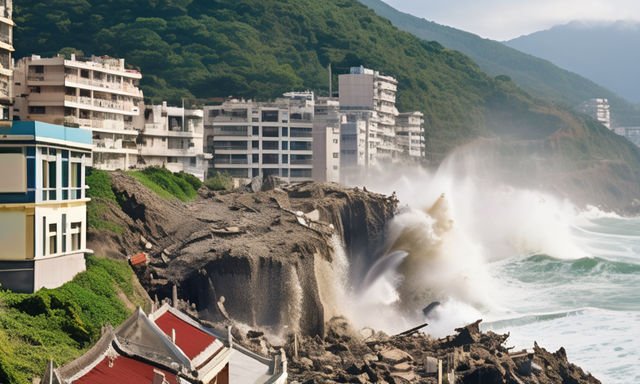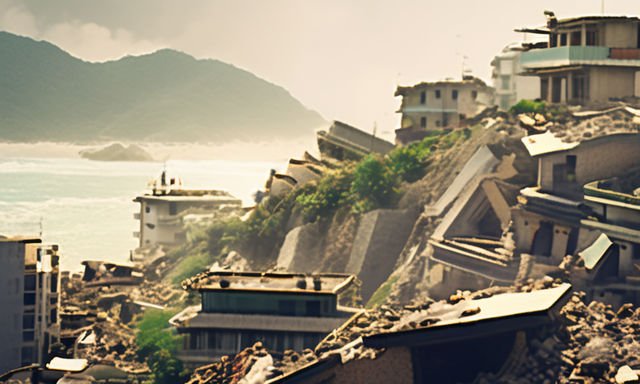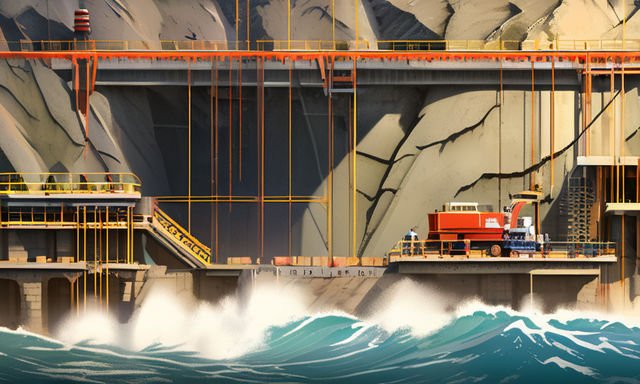The cost of doing things wrong.

Seismology is a branch of geophysics that is responsible for the study of earthquakes. Its objective, the holy grail of seismologists, would be to be able to predict earthquakes in advance in order to put the population on alert and avoid human losses in today's earthquake, April 3. of 204 on the island of Taiwan was magnitude 7.4 as reported by the United States Geological Survey.

Souce
This earthquake is one of the strongest that the island has suffered in the last 25 years, from the United States Geological Service it is also the map above, where we can see the ring of fire that surrounds the Pacific Ocean, it is a very geologically active with numerous volcanoes and suffers abundant earthquakes and tidal waves.

Earthquakes kill, yes, but most deaths can be avoided with a good urban policy. In countries with seismic risk, politicians have to step aside because those who have to have the say are architects, engineers and geologists. – Seismologists, should be the ones who make the decisions when it comes to constructing new buildings or designing new infrastructures, there are countries that do it well like Japan or Taiwan and others whose rulers do not do it so well.

Souce
For example, on February 6, 2023, almost a year ago there were two earthquakes of magnitude 7.5 and 7.8 that shook Turkey and Syria, killing 60,000 people. Syria has been experiencing chaos due to the civil war since years ago and can hardly carry out an urban policy that prevents earthquakes, another country that is experiencing a chaotic situation is Haiti. Let us remember that on January 12, 2010, an earthquake of magnitude 7, smaller than the one in Taiwan, killed 316,000 people, a brutality. In that year the world turned to aid with Haiti but you think that the country took advantage of the situation to improve the quality of life of its population and the urban planning of its cities to avoid future earthquakes, it seems to me that the situation has not improved much at Haiti.

In 1999, when the most powerful earthquake occurred in Taiwan before this one, it was 7.3 degrees and left 2,400 dead and 11,000 injured. It is clear that Taiwan has learned its lesson and has improved its structures, both buildings and infrastructure.
Thank you for visiting my blog. If you like posts about #science, #planet, #politics, #rights #crypto, #traveling and discovering secrets and beauties of the #universe, feel free to Follow me as these are the topics I write about the most. Have a wonderful day and stay on this great platform :) :)
Em português
O custo de fazer coisas erradas.

A sismologia é um ramo da geofísica responsável pelo estudo dos terremotos. Seu objetivo, o santo graal dos sismólogos, seria ser capaz de prever terremotos com antecedência para colocar a população em alerta e evitar perdas humanas no terremoto de hoje, 3 de abril. de 204 na ilha de Taiwan foi de magnitude 7,4, conforme relatado pelo Serviço Geológico dos Estados Unidos.

Souce
Este terremoto é um dos mais fortes que a ilha sofreu nos últimos 25 anos, do Serviço Geológico dos Estados Unidos é também o mapa acima, onde podemos ver o anel de fogo que circunda o Oceano Pacífico, é um local muito geologicamente ativo com numerosos vulcões e sofre abundantes terremotos e maremotos.

Os terremotos matam, sim, mas a maioria das mortes pode ser evitada com uma boa política urbana. Em países com risco sísmico, os políticos têm de se afastar porque quem tem a palavra a dizer são os arquitectos, engenheiros e geólogos. – Os sismólogos, deveriam ser quem tomam as decisões quando se trata de construir novos edifícios ou projetar novas infraestruturas, há países que o fazem bem como o Japão ou Taiwan e outros cujos governantes não o fazem tão bem.

Souce
Por exemplo, em 6 de fevereiro de 2023, há quase um ano, ocorreram dois terremotos de magnitude 7,5 e 7,8 que abalaram a Turquia e a Síria, matando 60 mil pessoas. A Síria vive o caos devido à guerra civil há anos e dificilmente consegue executar uma política urbana que evite terremotos, outro país que vive uma situação caótica é o Haiti. Lembremos que no dia 12 de janeiro de 2010, um terremoto de magnitude 7, menor que o de Taiwan, matou 316 mil pessoas, uma brutalidade. Naquele ano o mundo recorreu à ajuda ao Haiti mas você acha que o país aproveitou a situação para melhorar a qualidade de vida da sua população e o planejamento urbano das suas cidades para evitar futuros terremotos, parece-me que a situação tem não melhorou muito no Haiti.

Em 1999, quando ocorreu o terremoto mais poderoso em Taiwan antes deste, foi de 7,3 graus e deixou 2.400 mortos e 11.000 feridos. É evidente que Taiwan aprendeu a lição e melhorou as suas estruturas, tanto edifícios como infra-estruturas.
Obrigado por visitar meu blog. Se você gosta de posts sobre #ciência, #planeta, #política, #direitos #cripto, #viajar e descobrir segredos e belezas do #universo, fique à vontade para me seguir, pois esses são os assuntos sobre os quais mais escrevo. Tenha um dia maravilhoso e fique nesta ótima plataforma :) :)
